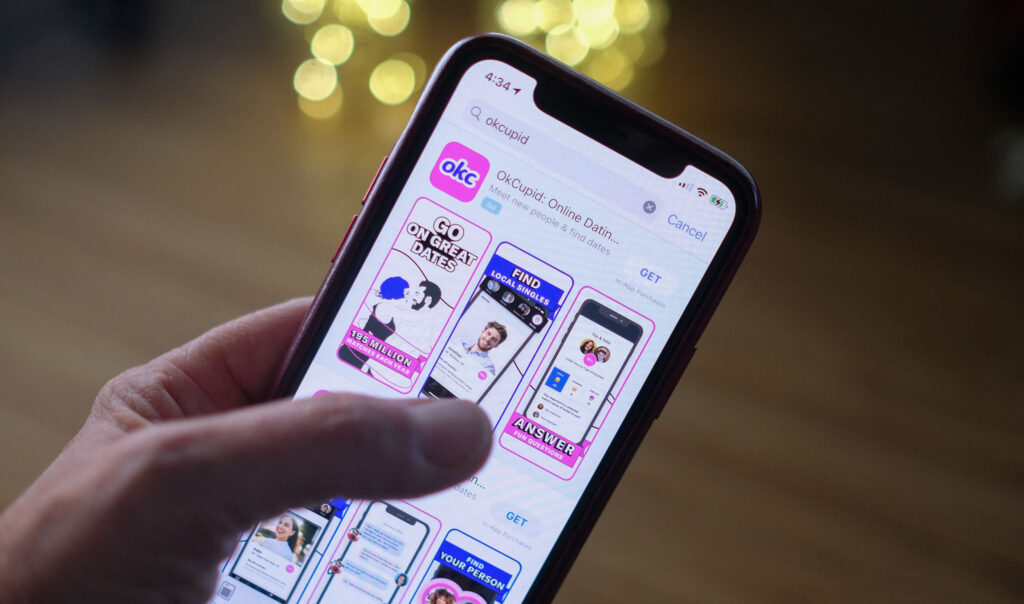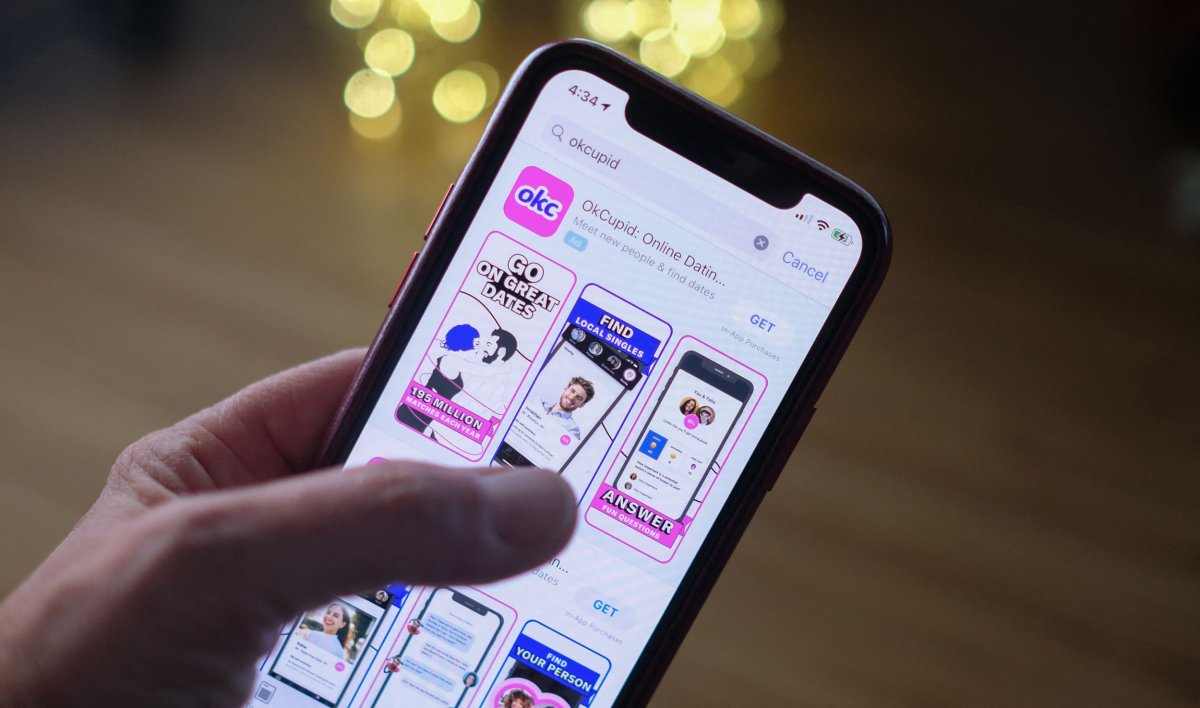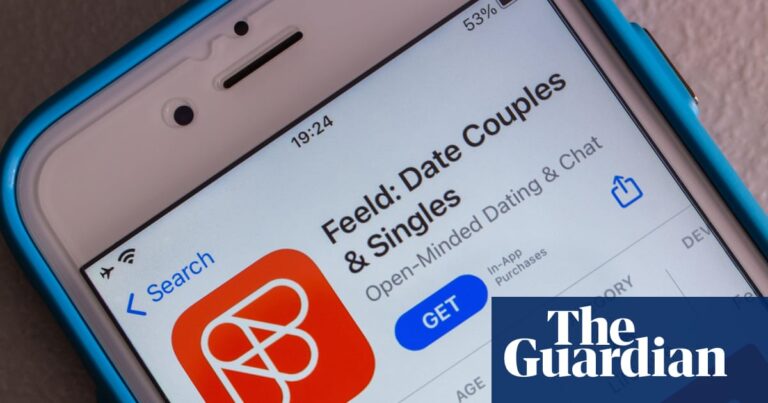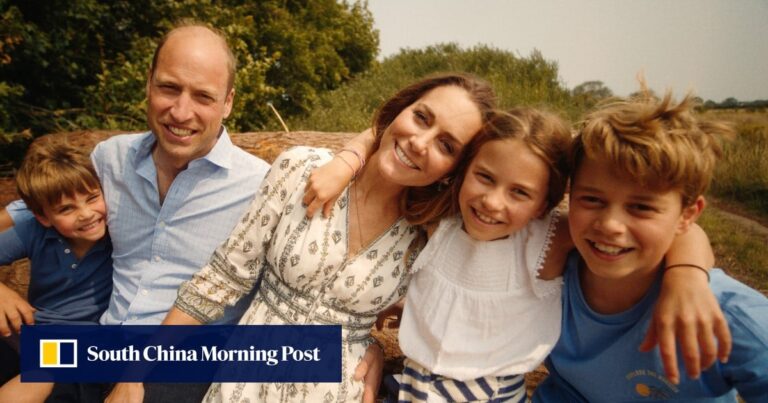
Men and women view career ambition in a potential partner very differently, according to a new report from dating app The League.
While women said career ambition matters when deciding to match with someone at 73 percent, only 38 percent of men said the same.
Why It Matters
Dating apps are one of the most popular ways to meet a significant other in the modern age, but both men and women have increasingly expressed frustrations with the apps as well as overall dating culture today.
Whereas men sometimes complain about low match rates, women often say they are inundated with too many options, low quality matches and disrespectful messages. A mismatch in what men and women are looking for could also further complicate the odds of finding the right one.

CHRIS DELMAS/AFP via Getty Images
What To Know
Whereas women highly valued career ambition when deciding to match with someone at 73 percent, only 38 percent of men said the same.
Overall, 60 percent of The League’s survey respondents said career ambition mattered when trying to decide whether to match with someone.
“Ambition has always carried a double meaning in dating. For women, it’s often read as security, stability, and a partner who can share the weight of life’s responsibilities,” DatingAdvice.com relationship expert and ASSECT certified sexologist Natassia Miller told Newsweek. “It’s not just about money, though money is part of it. It’s about choosing someone who is driven, self-motivated, and has a vision for their life. Ambition signals reliability in a world where so much feels uncertain.”
When it came to which industries people preferred their matches to work in, there were some slight differences between men and women as well.
Women gravitated toward finance jobs at 78 percent, followed by medical and mental health (73 percent) and tech/engineering (73 percent). Men, meanwhile, said they were drawn to creative and media types (53 percent). Only 19 percent of women said they found that line of work attractive in a partner.
And while 54 percent of men agreed that they would date someone less driven than them, only 10 percent of women said the same.
“If anything, ambition in women can be seen as intimidating or unnecessary, as if her career aspirations might compete with his role,” Miller said. “Especially now, that bias lingers. The message many men have absorbed is that a partner’s warmth, attractiveness, or emotional support are the qualities to look for, while ambition is optional.”
However, the majority of both men and women said they would date someone who earns significantly more than them, at 92 percent overall.
Altogether, 83 percent of respondents said lifestyle compatibility is their top priority when looking at potential matches, tied only with physical attraction.
What People Are Saying
Lisa Kraynak, senior vice president of marketing at The League, said in a statement: “The League is the one place where high-achieving singles know their drive will be celebrated, not questioned. Our members are here because they want to meet people who share their ambition, values, and vision for the future, and that’s a rare combination to find anywhere else.”
Hallie Kritsas, a licensed mental health counselor with Thriveworks, told Newsweek: “Women often value ambition in relationships because it signals stability and future goals that are shared. Men, however, might not prioritize it as much since they have never needed to seek status in a partner in a social manner. This shows how traditional gender roles might still be lingering, as ambition is expected in men but is only optional in women.”
DatingAdvice.com relationship expert and ASSECT certified sexologist Natassia Miller told Newsweek: “What this really highlights is how traditional gender roles still shape modern dating, even among people who think of themselves as progressive. Women are encouraged to ‘marry up’ or at least seek a partner who matches their ambition, while men are not socialized to do the same. The irony is that women’s financial and educational gains over the past fifty years have transformed relationships, yet cultural scripts take longer to catch up.”
What Happens Next
As a slight mismatch of values in ambition is still at play, Kritsas said men and women will likely both feel pressured in some ways.
“The big picture would be that women still feel pressure to balance their ‘drive’ with connection, while men may miss out on embracing ambitious partners,” Kritsas said. “Our ideas of partnership are evolving, but they aren’t equal yet.”
If men undervalue ambition in women, they may risk missing out on “one of the most powerful attractors of modern intimacy,” Miller said.
“Shared ambition, whether that’s about careers, creative projects, or life goals, creates partnership, not dependency. Think of cultural power couples like Beyoncé and Jay-Z or Michelle and Barack Obama,” Miller said.
“Their appeal isn’t just that they’re in love, it’s that they push each other forward. Dating apps and reports like this one reveal the gap, but they also show where growth is possible. Ambition isn’t just about who earns more or works harder. It’s about the energy you bring to building a life together.”



